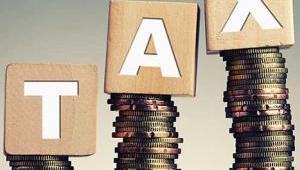Google and Revenue & Customs announced the deal on Friday after a six-year inquiry by HMRC. It will see the internet giant repay back taxes accumulated over a decade-long period during which Google legally avoided paying up to £1.5bn using complex international tax structures.
Chancellor George Osborne celebrated the deal’s announcement as a huge step forward that addresses public anger around large companies skirting their tax dues. However, there was swift criticism that, even with the repayments, Google is still benefiting from a ‘sweetheart deal’ and getting away with paying a relatively meagre amount.
“Bet individual taxpayers wouldn’t get off as lightly as Google on back tax. Cosy deal,” tweeted PAC chair Meg Hillier on Saturday, adding that she would be calling the firm and HMRC before the committee.
In a statement from the PAC, Hillier added that HMRC is “effectively admitting it pulled in too little tax from Google for nine out of ten years”, vindicating the PAC’s “vigorous pursuit of international companies that were running rings around tax officials”.
“This is not a great success rate and the PAC will be calling in HMRC and Google to explain,” she said.
It emerged over the weekend, after the press began to pick over the details of the deal, that Google had effectively paid an annual rate of corporation tax of just over 2.77% over the last decade, compared to the 20% paid by most British businesses.
Since 2005, when HMRC’s investigation into whether Google had unlawfully evaded taxes kicked off, the firm has earned an estimated £7.2bn in profits in the UK, which is one of its biggest markets.
With the £130m back payment and the £70m Google had already paid in taxes over the 10-year period, the firm has still only paid £200m on its revenues. Independent experts commenting on the deal estimate the firm has avoided around £1.5bn in taxes since 2005.
Labour shadow chancellor John McDonnell was quick to criticise the “trivial” payment and said he would demand details from the chancellor on Monday.
But financial secretary to the treasury David Guake noted that the Google tax bill dates back to the middle of the last Labour government's terms, noting they “did absolutely nothing about it”. For Labour to complain now “is at best selective amnesia and at worst shameless hypocrisy”, he said.
He added that the deal is a “vindication of the approach of this government”, which “has taken the lead both internationally through the G20 and through the new diverted profits tax”, which will target profits that companies try to divert from the UK in bad faith.
However commentators have noted that the UK’s deal with Google does not fall in line with recommendations made by the Organisation for Economic Cooperation and Development last year.
The OECD’s guidelines worked to try and prevent multinational corporations from exploiting loopholes in the international tax architecture to move profits to lower tax jurisdictions, and attempted to deter governments from making cosy deals with international corporate giants that could harm the tax revenues of other countries.
Google, which makes most of its profits in the UK through online advertising, paid a minimal amount of tax here because it claims its advertising sales deals were closed in Ireland, the location of its European headquarters, where there is a low rate of corporation tax.
It also employed complex corporate structures to channel profits to Britain’s overseas territory Bermuda, a well-known tax haven where the corporation tax rate is zero. This reduced the company’s taxes in Ireland because of the “double Irish” arrangement, where the country doesn’t levy taxes on income booked in subsidiaries of Irish companies that are outside the state, a structure Dublin is planning to phase out.
The back tax deal will also see Google pay more tax on revenues booked from UK advertisers, but it will keep the “double Irish” arrangement.
HMRC’s 2005 investigation into Google found that the company did not illegally evade taxes, but many whistleblowers have indicated that the firm does close advertising sales deals in the UK. Margaret Hodge, the former chair of the PAC, has been a staunch critic of the firm’s tax practices.
The new deal, and the fallout from it, are likely to impact the tax circumstances of other online giants in the UK including Amazon and Facebook.



















